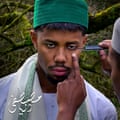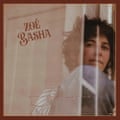For an artist only just releasing his debut album, 28-year-old Mustafa Ahmed has already been a remarkable number of different things: an acclaimed performance poet, who apparently began attracting acclaim aged 12. A founder member of the Canadian hip-hop collective Halal Gang. A director whose short film Remember Me, Toronto featured Drake, among others, discussing his personal experience of gun violence in the city. A collaborator on Valentino’s autumn/winter 2019 womenswear collection. A songwriter for hire, knocking out hits for Camila Cabello, the Jonas Brothers, Shawn Mendes and Justin Bieber. It’s already quite the CV, but Dunya fully introduces him in a role he first tried out on his 2021 EP When Smoke Rises: that of an acoustic singer-songwriter.

Ahmed’s style has often been described as folk, although it fits that particular generic heading only in the loosest sense: the comparisons to Leonard Cohen and Joni Mitchell may have more to do with shared nationality than what Dunya actually sounds like. It sits somewhere between Jack Johnson’s easy-going sound – you could easily imagine Johnson coming up with the melody of Name of God or What Good Is a Heart? – and the mush-mouthed angst of James Blake, who appeared on When Smoke Rises.
If you were desperate to throw a Canadian name into the mix, you might be better served considering Drake: there’s a light dusting of his Auto-Tuned solipsism about the accusatory tone of Dunya’s love songs, and it’s certainly not a huge stretch to picture old Drizzy writing the album’s opening line: “Both our eyes are red, but you’re high and I’m crying.” In fact, when Ahmed’s vocals take on the rhythms and cadences of rap, as on Beauty, End, it can vaguely recall Ed Sheeran, albeit Sheeran with a sweeter and more soulful vocal tone and considerably more to say about faith, gun violence and the conflict in Gaza.
Among Ahmed’s polymath skills lurks an impressive ability to attract what would once have been called “heavy friends”. As well as Blake, When Smoke Rises featured Jamie xx; here, the roster of producers includes the National’s Aaron Dessner, songwriter Clairo and acclaimed electronic auteur Nicolas Jaar, who has previously collaborated with Brian Eno and FKA twigs; Swedish singer-songwriter Snoh Aalegra and Rosalía muck in with backing vocals, their contributions buried so deep in the mix they barely register.
It’s an aggregation of talent that colours Ahmed’s songs in tasteful autumnal shades. Around the fingerpicked guitar there are atmospheric synthesisers and muffled voice note recordings of conversations; pianos striking lonely notes, delicate samples of flute and strings and a hint of dulcimer here and banjo there. The rhythms tend towards a bass drum evocative of a foot tapping on the first beat of the bar and handclaps filling in for a snare. For an album with a primarily urban setting, it gives off a surprisingly strong aroma of damp wood and bonfire smoke.
It’s beautifully done and its subtlety fits Ahmed’s lyrical approach. For a former performance poet relating grim stories from Toronto’s housing projects, he’s got an impressively light, even oblique, touch, focusing on hazy memories and telling details: “You’ve been on the phone for far too long / Either someone’s coming back or someone is gone,” he sings on Beauty, End. The title of Gaza Is Calling makes it sound like a strident protest song, but it isn’t: it seems to be about a Palestinian friend’s decision to return to his homeland, regardless of the risk, and Ahmed’s concerned response.
Indeed, if anything, the album’s sound is a little too beautiful and subtle for its own good. It flows gently from the speakers but has a tendency to sink into the background, albeit not unpleasantly. The songs are well written and melodically strong, but the uniform pace (slow) and atmosphere (melancholy) means they start to blur into one. Musically, the strongest thing here is Gaza Is Calling, precisely because it provides a bit of diversion. It starts out in standard style – Ahmed’s slurred vocals and fingerpicked guitar surrounded by samples of spectral vocals and strings playing a beautiful, vaguely Middle Eastern pattern – but as the song progresses, the bass drum gradually gets louder, booming more forcefully: at its conclusion, the track suddenly breaks into a frantic drum’n’bass-like pattern.
It’s tempting to say Dunya could have used more head-turning moments like it. That said, the world of gentle acoustic pop that bears comparison to Sheeran – the kind of music that can slip on to Radio 2, playlists called things like Unplugged Chill and into backgrounds of TikTok videos with equal ease – isn’t exactly overburdened with Black Muslim voices singing about housing projects or their relationship with God. There might be one as a result of Dunya’s release: its unobtrusiveness is its flaw, but perhaps it’s also the point.
This week Alexis listened to
Honesty – Measure Me ft Softlizard
Leeds-based self-styled “cross-genre collective” team up with pseudonymous former member of Menace Beach: the result is frantic, hypnotic and – thanks to the vocal – dreamily ethereal.
Source: theguardian.com


